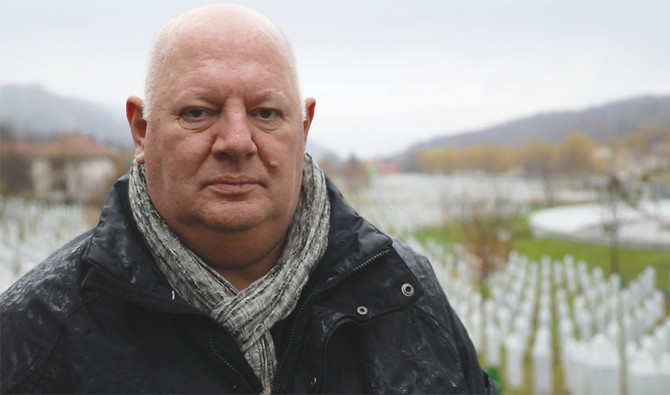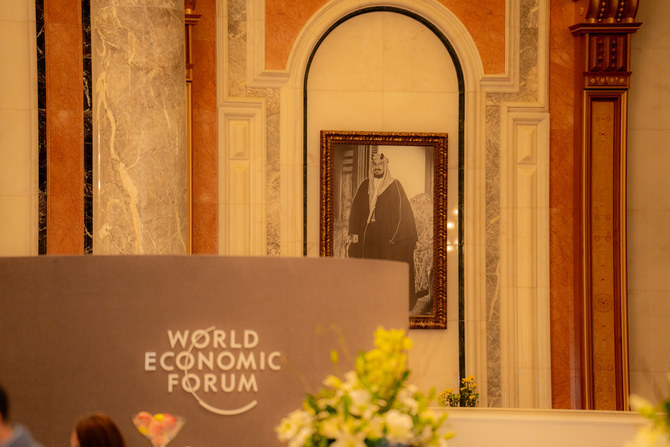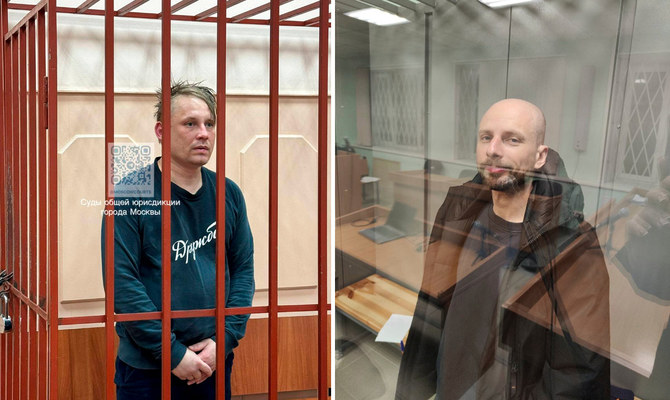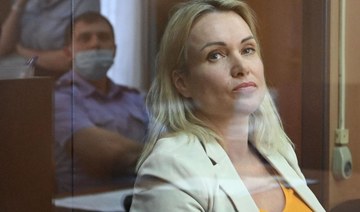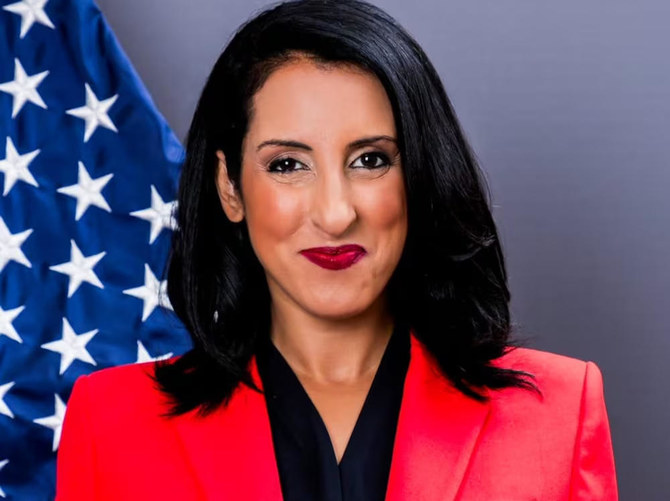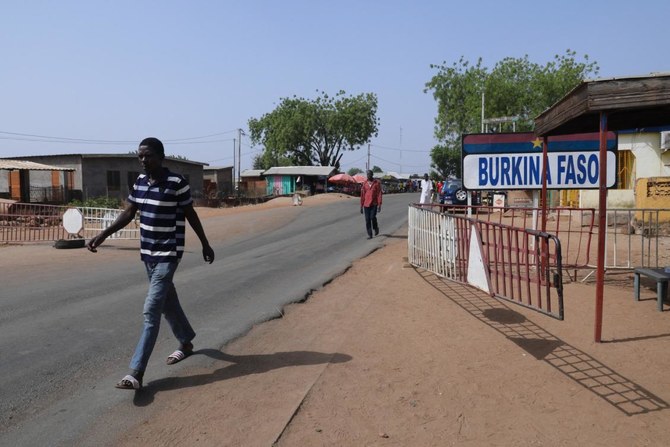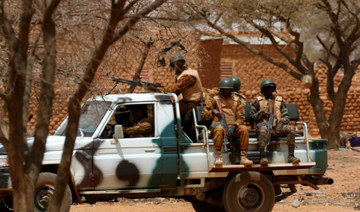LONDON: It has been almost three years since journalist Malcolm Brabant gave one of the most unusual acceptance speeches on receiving the Peabody Award (the oldest and arguably the most prestigious broadcast media award in the US) for his powerful reporting on the Syrian refugee crisis in Europe.
It began, “You may not know this, but I used to be seriously mad...”
By “mad,” he actually meant “insane” and he was neither joking nor exaggerating.
In 2011, Brabant, a veteran BBC foreign correspondent, did indeed descend into madness and spent 15 months in and out of psychiatric hospitals in two countries. He has spent the years since his recovery trying to prove that he lost his sanity because of a yellow fever vaccine manufactured by pharmaceutical giant Sanofi Pasteur.
Brabant, 63, had the vaccine, Stamaril, in April 2011 at a clinic in Athens, where he was then based as a correspondent for the BBC, as he was about to go on assignment in west Africa.
Within hours, his body was burning with a fever that did not subside for days. Then came the psychosis. At one point in his illness, he believed dead colleagues were talking to him.
Until then, Brabant had enjoyed a long and successful career as a radio and television journalist. He covered both Gulf wars and the Balkans conflict of the 1990s and reported extensively from the Middle East for the BBC before being posted to Greece. Now unable to work and with money tight, he and his Danish wife, Trine Villeman, moved to Copenhagen.
There, he deteriorated further. His damaged mind told him he was the devil. He heard voices in his head telling him to ”Kill, kill, kill.” He reasoned that the only way to protect his wife and son was to take his own life, which he tried to do.
Brabant’s madness was horrifying to live through. But we don’t have to take his word for it: It is there for all to see in “Malcolm Is A Little Unwell,” an 80-minute film that will be available to download on Jan. 8.
Mindful, perhaps, of the possibility of having to one day prove a connection between his madness and the vaccine, Villeman began filming her husband. For the first time, viewers can witness a man losing his mind as it happens and are spared very little. We see Malcolm yelling at the top of his voice outside their home in Athens. We see him looking catatonic after a fourth round of electro-convulsive therapy (ECT).
There are also interviews with medical specialists who treated Brabant and who are also convinced of the link between his illness and Stamaril, the yellow fever vaccine.
Consultant psychiatrist Dr. Diana Kristensen, who treated Brabant in Copenhagen, explains that vaccine is a live virus that can cause side-effects when intruded into the body.
“I am certain it was the vaccine the triggered all these events. It was like an avalanche where you start with a little stone, then it just rolls and rolls and becomes bigger and bigger. If you didn’t receive that shot, you wouldn’t have become ill.”
Dr. Thomas Middleboe, one of the most eminent psychiatrists in Denmark and a former president of the Danish Psychiatrists Society, points out that as a foreign correspondent, Brabant was used to high pressure so it was unlikely that his psychosis was caused by stress.
“When this psychotic event happens right after, in a chronologically close association with a vaccine, it becomes a very likely conclusion that it has an organic outset,” he said in the film.
After more relapses, Brabant left hospital for the last time in July 2012. Meanwhile, his wife had been researching Stamaril. She obtained figures from the World Health Organization that showed that in the previous decade there had been more than 400 reports of adverse events related to the yellow fever vaccine, involving mental illness.
Brabant said Sanofi Pasteur have refused to engage with him.
“We thought they’d be interested in trying to find out why my husband became psychotic after having their yellow fever vaccine,” said Villeman. “At one point they asked for his medical records and we supplied those. We then asked for a meeting with them but they don’t want to meet with us.”
In a statement, the company said there was “no evidence found for a causal relationship between the administration of the yellow fever Stamaril and Mr.Brabant’s reported medical conditions.Vaccines are easily suspected of causing adverse events without any firm evidence other than the fact that the event was observed following vaccination.”
Experts believe more research is needed into vaccines — how big the dose should be and how often it should be administered.
“We don’t need as much of it as we thought to give protection for life, which also means that some people were getting too much of it and not at the right times,” said Dr. Heidi Larson, head of a global program to improve public confidence in vaccines at the London School of Hygiene and Tropical Medicine.
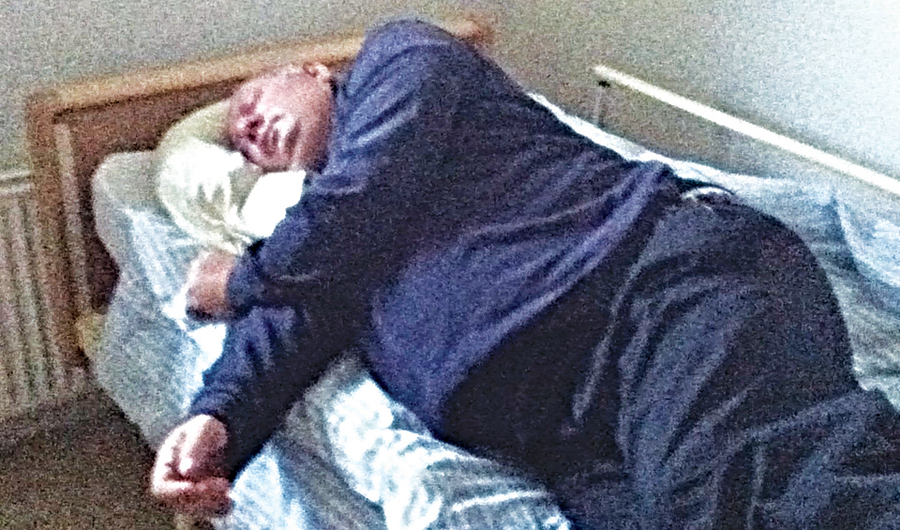
Brabant, 63, had the vaccine, Stamaril, in April 2011 at a clinic in Athens, where he was then based as a correspondent for the BBC. Within hours, his body was burning with a fever that did not subside for days. Then came the psychosis.
In 2013, the WHO issued new guidelines on the yellow fever vaccine. Instead of a booster every ten years, a one-time shot was deemed sufficient for life.
But at a conference that year, the company admitted that the way it manufactures the vaccine had barely changed since the 1960s because it was not worth the effort. Ronald Neeleman, Sanofi Pasteur’s head of innovation told the conference: “This is a very small market with very, very low margins and just really not an incentive to complete redevelop this yellow fever vaccine. So we’re basically stuck there with these production methods and this yellow fever which doesn’t really make us any money.”
Now fully recovered, Brabant now lives in Marlow, England and works for the US broadcaster PBS. It was his reporting for the station’s Newshour program that won him the coveted Peabody award, which he regards as his “professional redemption.”
But he continues to seek some redress — or at least some acknowledgment — from Sanofi Pasteur and justice for those living in regions where yellow fever still rages but who, unlike him, do not have a good health care system to turn to. And also for Lukas, now 19, who was profoundly affected by his father’s madness.
“I am an eternal optimist. I believe overwhelming odds can be overcome,” said Brabant. “My son witnessed things that no child should ever have to see.”
“Malcolm Is A Little Unwell” is available from Jan. 8 on iTunes, Googleplay, Vimeo and Amazon.


